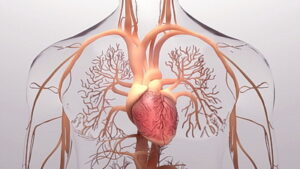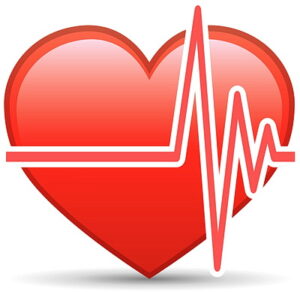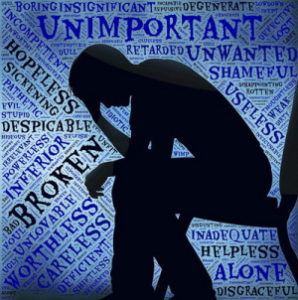
In our previous article, we discussed sleep deprivation and its associated symptoms. Now, let’s look at why you feel sleepy during the day if you don’t have sleep deprivation illnesses.
Other circumstances must be evaluated if this happens regularly and does not appear to be due to sleep-deprived illnesses or external situations (e.g., athletic workout, long day at the office, stress, etc.).
How is Your Heart?

Several heart conditions can lead to fatigue and affect energy levels. If your heart weakens, it will try harder to pump the blood. This reduces oxygen to your organs, leaving you tired even after minimal activity.
If your fatigue is related to your heart, here are some of the common ailments that you may have:
- Coronary Artery Disease (CAD): Blocked or narrowed arteries restrict blood flow to the heart, hampering this organ’s ability to function normally. This can lead to chest pain (angina) and fatigue, especially during physical exertion.
- Arrhythmias refer to Irregular rhythms in the heart that can disrupt the normal flow of blood, depriving the body of necessary oxygen and nutrients and subsequently causing fatigue and possibly dizziness.
- Congestive Heart Failure: Has your doctor ever looked at your ankles during your visit for a check-up? The reason is that he/she is checking to see if they are not swollen, which could be a sign of a heart defect. Congestive heart failure refers to the build-up of fluid in your lungs and lower limbs if your heart is not pumping blood properly, which can lead to shortness of breath and swollen legs. Consequently, this additional strain on your body can exacerbate fatigue.
- Valvular Heart Disease is different from clogged arteries. It refers to leaky heart valves that can cause blood to flow back into the heart chambers, increasing pressure and leading to fluid build-up and tiredness.

In general, the severity of your fatigue, if it is related to your heart, can vary depending on your specific heart condition and how long the condition has progressed. Some people may experience general tiredness during the day, while others may feel sluggish after minimal activity. The condition can also worsen with exertion, emotional stress, or certain medications.
If you suspect your fatigue is related to a heart condition, it’s crucial to seek medical attention as soon as possible. Early diagnosis and proper management can significantly improve your health and energy levels.
Additionally, lifestyle changes like a healthy diet, regular exercise, adequate sleep, and stress management can help to combat fatigue and improve your overall well-being.
It is important to emphasize that persistent fatigue should not be ignored, especially if accompanied by other symptoms like chest pain, shortness of breath, or swelling.
Summary: There are constant advances in the study of heart health, but the bottom line is you should always consult a doctor who can help determine the cause and guide you toward appropriate treatment to boost your energy and address any underlying heart concerns.
Excessive Salt Intake and Disrupted Acid-Base Balance

Your heart health is related to the food you eat, and salt can be a major culprit. Excessive salt use is often associated with the development of cardiovascular conditions.
Salt can also disrupt the acid-base equilibrium in the body, which scientists consider one of the reasons behind one’s sluggish disposition.
Processed and junk foods are inherently rich in salt because it enhances and preserves the taste. Most people today rely on these bad food choices to replenish their calorie count. Therefore, it has become common not to feel fresh even after sleeping enough hours.
Cut junk food from your diet and try to decrease the amount of salt in your home-cooked dishes. Cutting down the excessive salt in your diet is a gradual process, but once you succeed, you will feel more energetic and productive throughout the day.
Selenium Deficiency
Selenium is one of the micronutrients a human body needs in trace amounts. A person not eating a balanced diet might face a selenium deficiency. The trace amounts of selenium in the body are part of various physiological functions. An adequate amount of selenium is responsible for the normal functioning of the thyroid. Selenium is also vital for brain and immune functions.
Scientists have found that a selenium deficiency has a direct link with the feeling of exhaustion and cognitive confusion. A person not taking the recommended amount of selenium through their daily diet can develop this problem of feeling sleepy all the time. Seafood, nuts, beans, and eggs are rich in selenium. So ensure they remain part of your regular diet to prevent selenium deficiency. Selenium supplements are also available on the market, but we recommend you fulfill your selenium requirements from natural sources.
Zinc Deficiency and Slower Metabolism
Zinc is another trace mineral with a more critical physiological role than selenium. It acts as a catalyst in various metabolic reactions so that zinc deficiency can slow down the normal progression of metabolic reactions. A slow metabolic regimen is not just bad for weight management; it also lowers the energy levels of the affected person, resulting in tiredness. The World Health Organization says over one billion people worldwide suffer from zinc deficiency.
Any person with acute zinc deficiency can experience the condition discussed in this article. Meat, dairy products, and legumes are good sources of the recommended zinc intake. However, please don’t go overboard with meat because it can lead to other problems. Similarly, make sure you use dairy products with minimal fat content.
Weight Gain

Gaining four pounds might not sound like a big deal. However, scientists have found that gaining this kind of weight can instigate a feeling of undefined exhaustion. If you can’t get rid of the atmosphere of tiredness after completing the recommended sleep amount, check your weight.
Excessive Sugar and Slowed Down Metabolism
It is primarily believed that sugar intake restores our energy levels. That’s true. However, excessive sugar intake is counterproductive for the body. The surplus sugar stored in the body converts into acid, which lowers the metabolic rate. In normal circumstances, vitamin B1 neutralizes this sugar-driven acid. However, in the case of excessive intake, vitamin B1 can’t neutralize all of it. As a result, the person starts feeling low and drowsy.
Excessive Sugar Can also Affect the Quality of Sleep

Some recent studies have suggested that excessive sugar in the bloodstream also increases the back-and-forth between REM and deep sleep stages. A sleeping duration with so many underlying disruptions doesn’t ensure quality sleep. Thus, the affected person can feel the lingering feeling of exhaustion even after sleeping for enough hours.
Protein and Amino Acid Deficiency
Protein is one of three essential macronutrients our body needs to perform its regular functions. People eating fewer proteins can eventually face their acute deficiency. In such cases, the homeostatic mechanism directs the body to fulfill its protein needs from muscles (muscle fibers are primarily made of proteins).
This protein redistribution within the body also uses metabolic amino acids. The depletion of amino acids in the metabolic subsystem can slow down its rate and give rise to the feeling of undefined tiredness.
A Cluttered Space and Overworked Brain
Not every undefined instance of tiredness is the function of physiological processes. Researchers at Princeton University have studied that the human brain is wired to sort everything in a particular order in the subconscious. When the brain perceives visual signals from cluttered and untidy spaces, it takes more time to categorize all the information.
As a result, the brain starts feeling tired even when it has not engaged in any cognitive activity. This unproductive brain activity is also why many feel tired regardless of how much sleep they get.
Regular exercise can also help us combat the feeling of lethargy. Even 20 minutes of daily exercise can have an energizing effect on the body. Scientists also believe that listening to too much music can create physiological and psychological conditions similar to stress, leading to sleepiness and exhaustion for no apparent reason. A healthy diet that takes care of every macro and micronutrient need of the body can help eliminate the undefined feeling of exhaustion.
Conclusion
There could be many reasons why you feel tired. The first thing to do is to see your doctor and have him/her run a thorough workup to see where the problem exists. Standard blood tests can help determine why you are tired. If it is not an illness, the blood tests can determine if you lack nutrients or other factors, such as insufficient sleep habits. There can be many remedies to help you feel more alive and active again, so why wait? Do some homework and get lively again!








 Although you might think it is the end of the world, it is not. Below are some suggestions that have been proven to work. All it takes is a simple tryout and then you can see which ones will work for you. The idea is to find something that will stop you from worrying and subsequently give your body some rest from feeling anxious, which can lead to numerous physical issues. You can stop it and if there is one factor to emphasize, it is don’t give up!
Although you might think it is the end of the world, it is not. Below are some suggestions that have been proven to work. All it takes is a simple tryout and then you can see which ones will work for you. The idea is to find something that will stop you from worrying and subsequently give your body some rest from feeling anxious, which can lead to numerous physical issues. You can stop it and if there is one factor to emphasize, it is don’t give up!




 There is nothing wrong with fantasizing about better times or thinking about things you might like to do in the future, so long as you keep it in perspective and don’t lose sight of the fact that it is not your reality just yet.
There is nothing wrong with fantasizing about better times or thinking about things you might like to do in the future, so long as you keep it in perspective and don’t lose sight of the fact that it is not your reality just yet. Anger can no doubt bring along stress and anxiety. One thing that should be done is not to keep that anger within yourself. Talk to someone about it. If they can’t help, at least you have an outlet to vent your frustrations.
Anger can no doubt bring along stress and anxiety. One thing that should be done is not to keep that anger within yourself. Talk to someone about it. If they can’t help, at least you have an outlet to vent your frustrations.






 Now, imagine if instead of such a move, people engage in jeers and mockery. Tormenting those who are experiencing a hardship of the
Now, imagine if instead of such a move, people engage in jeers and mockery. Tormenting those who are experiencing a hardship of the 


 A
A 
